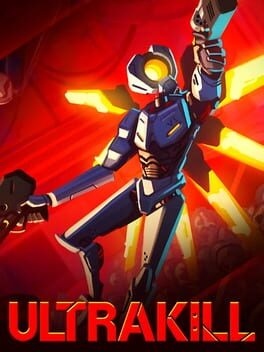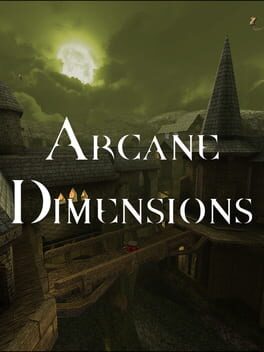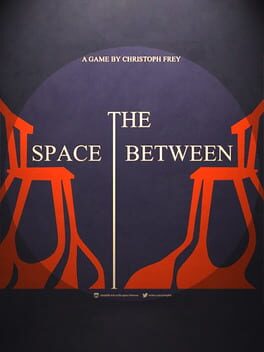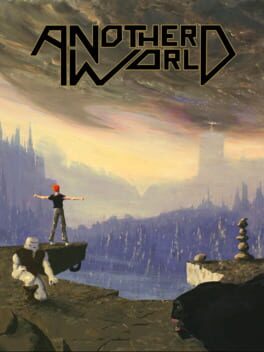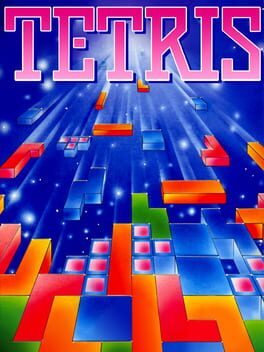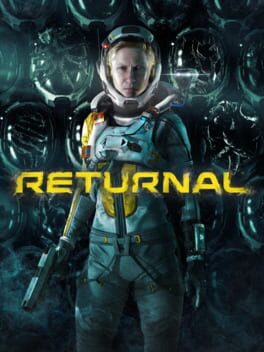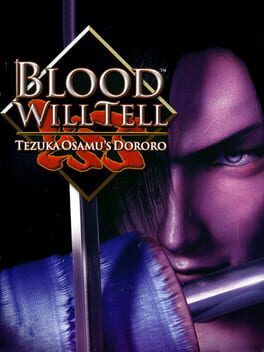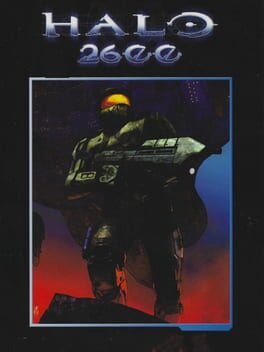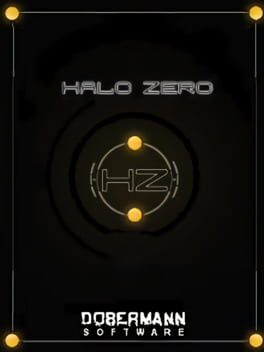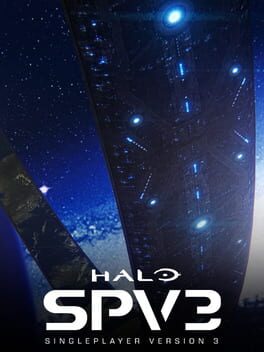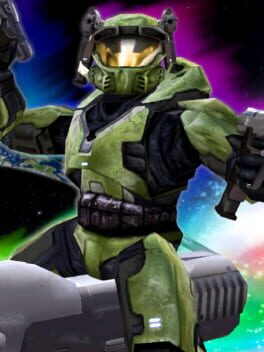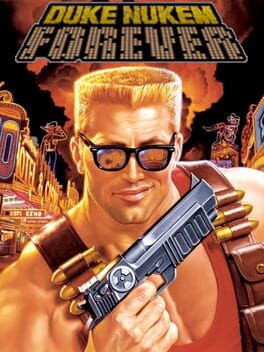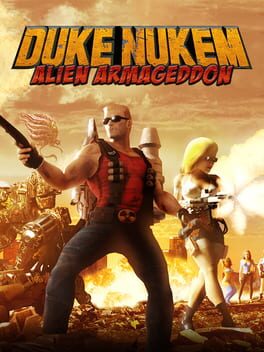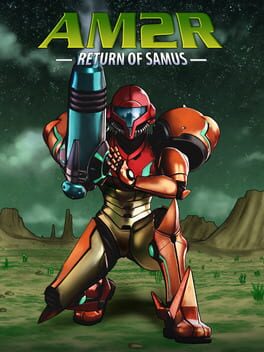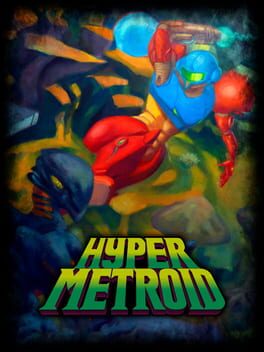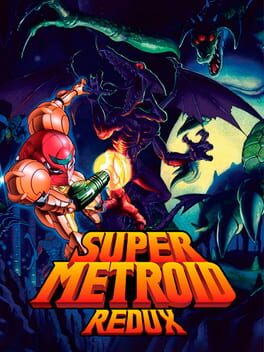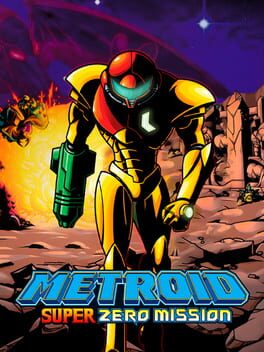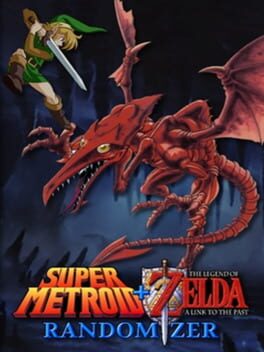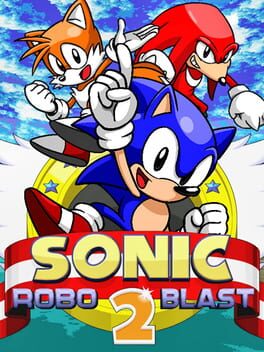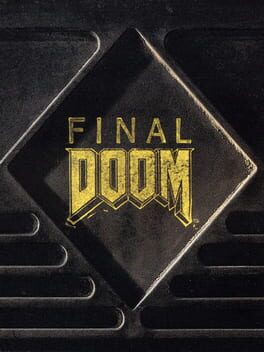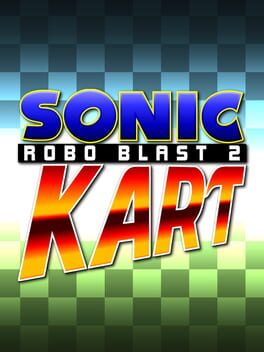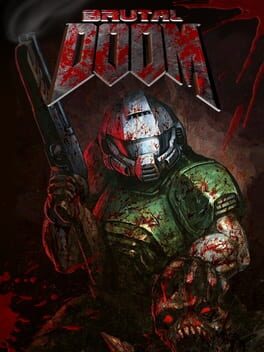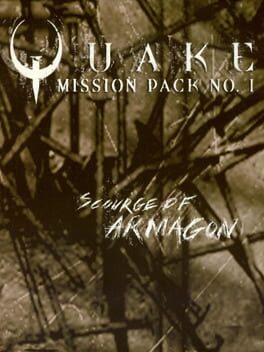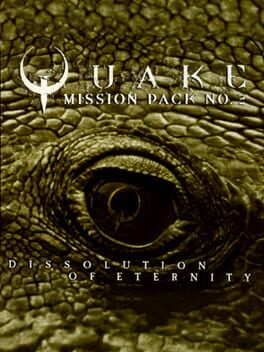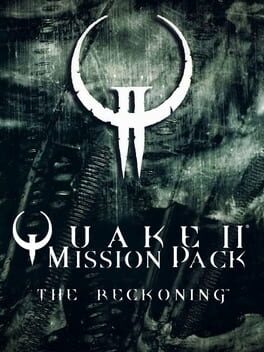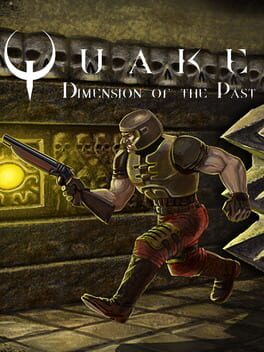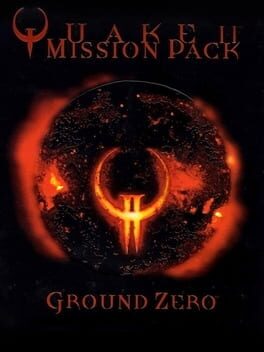87 reviews liked by Xantha_Page
Ultrakill
2020
STOP PUTTING BOSS FIGHTS IN FIRST PERSON SHOOTERS
⦁ DOOM was about navigating LABYRINTHS, NOT UPGRADE MENUS
⦁ "Shoot" is ONE BUTTON, not two
⦁ Want to switch to a weapon? Do it DIRECTLY, with ONE HOTKEY
⦁ "The Red Variant of the Nailgun creates AOE damage if a Light or Medium Weight enemy is hit with its Jump Cable alternate fire, with damage proportional to the number of nails embedded in the Light or Medium Weight enemy, though airborne enemies are not affected by the damage" THIS IS A NONSENSICAL STATEMENT MADE BY DERANGED PEOPLE
Look at what INDIE DEVS have been demanding your respect for, after all the RAM we put in their computers:
(these are REAL MECHANICS, made by REAL GAME DESIGNERS):
⦁ FUNNY COLORED HUD ICONS
⦁ 130 TYPES OF STYLE BONUS????
⦁ RAPE JOKE EASTER EGG
IF "BOOMER SHOOTER" WAS REAL HOW COME NOBODY THOUGHT IN DOING
while(true){ game(good); }
THEY PLAYED US FOR ABSOLUTE FOOLS
⦁ DOOM was about navigating LABYRINTHS, NOT UPGRADE MENUS
⦁ "Shoot" is ONE BUTTON, not two
⦁ Want to switch to a weapon? Do it DIRECTLY, with ONE HOTKEY
⦁ "The Red Variant of the Nailgun creates AOE damage if a Light or Medium Weight enemy is hit with its Jump Cable alternate fire, with damage proportional to the number of nails embedded in the Light or Medium Weight enemy, though airborne enemies are not affected by the damage" THIS IS A NONSENSICAL STATEMENT MADE BY DERANGED PEOPLE
Look at what INDIE DEVS have been demanding your respect for, after all the RAM we put in their computers:
(these are REAL MECHANICS, made by REAL GAME DESIGNERS):
⦁ FUNNY COLORED HUD ICONS
⦁ 130 TYPES OF STYLE BONUS????
⦁ RAPE JOKE EASTER EGG
IF "BOOMER SHOOTER" WAS REAL HOW COME NOBODY THOUGHT IN DOING
while(true){ game(good); }
THEY PLAYED US FOR ABSOLUTE FOOLS
Arcane Dimensions
2018
Most popular Quake map pack. As a base mod, many nice changes: projectile shotguns, new weapons and upgrade pickups, more granular ammo/armor drops. Tons and tons of new enemies, some sorely needed (crossbowman, soldier variations). Readability is now more of an issue though, ex. "ogre with hammer" who is similar to vanilla vs. "hammer ogre" who has a dangerous tremor attack.
Played on Hard. Map notes:
- id remakes: Fine. Ogre Bastille is the standout which is unsurprising since the source material is one of id's best.
- Obsessive Brick Disorder: Combat map, basically chained rooms packed with enemies. Fights are chaotic enough to make it work.
- Firetop Mountain: This one didn't really do it for me, the visuals are cool but the areas before the lava feel perfunctory.
- Crucial Error: Mazey techbases like this don't sit well with me when they're this long, even despite some cool geometry like the narrow room with the lava pit or the rocket run on the edge of the map.
- Terror Fuma: Centralized layout helps a lot in keeping your bearings, and infighting is neat. Otherwise similar to above, and definitely too long. Fragile soldier enemies get old to fight even with the new AD variants.
- Foggy Bogbottom: Love the swampy aesthetic, and the navigability is impressive given the theme, but similar to above in practice. Kinda meandering, random death knights in hallways aren't very exciting. Gets better later on.
- Realm of Enceladus: Great visual theme, and breezier progression helps a lot. Good ogre usage underground, and love the death knight room connected by floating chains.
- Grendel's Blade: The sword is very cool. Compact with cramped geometry. Smooth flow, except for one confusing progression spot where I had to fall down into a cage. Nice map!
- Necromancer's Keep: It's fine, decent combat with some fun traps and nice creepy aesthetic. Strangely forgettable though?
- Leptis Magna: Of the big maps, successfully keeps forward momentum the best. Nicely balances the signature AD grandeur with deceptively hostile combat geometry and fast-paced fights. "Roman" aesthetic is evocative and calls to mind brutal militarism and gladiator fights, feel like this is fertile ground for others.
- Per Aspera Ad Iferi: The giant hallway fights get satisfyingly frenetic, though running away is perhaps too easy. Don't like the conclusion, see Tears of the False God. Weird map.
- The Horde of Zendar: Great map, the verticality and dense monster-filled layout totally sells the idea of tearing through an evil city. Would be even better with more enemies!
- Arcane Monstrosity: Love this visual style and overall concept, but feels undercooked. Needs more geometry or enemies that push you around, so you viscerally feel the floating void map aspect.
- Arcane Adamantine: Fun little dungeon map, not too memorable for me but cool. I like how you wind around the periphery at the end.
- Nyarlathotep's Sand Castle: Lacks AD spectacle but makes up for it with good combat. Just a solid dungeon crawl with threatening encounters and a neat theme. Really enjoyed this one.
- Ak-Ahlakha: My favorite, and also very different to the rest of this set. Treacherous vertical layout you'll loop through as it's stuffed with monsters over and over. I imagine the environment as some kind of dark library ripped out of its own dimension and into the void after a ritual gone wrong. Too kind, should use more destructible ground and kill you if you fall.
- Tears of the False God: Very beautiful colors and geometry! This layout is sort of asking for trouble though. I find open air encounters don't really work that well in Quake, the enemies are too vulnerable to circle-strafing compared to Doom where projectiles and bodies can more readily constrict your movement.
- Forgotten Sepulcher: Expected to dislike this map but surprisingly it won me over. I think the key is the 50 (!!!) secrets which heavily reward exploration and sell the sense of wandering through a massive labyrinthine structure. Insane detailing. Combat is okay, last fight especially is limp.
Easy recommendation, many styles so it's likely you'll find something that resonates with you personally. What I learned is that I'm relatively sensitive to combat, and on that side Quake seems like it needs more care and inventiveness on the mapper's part than Doom does. Also gives me appreciation for Doom slaughtermapping scene, which considers both combat and aesthetics as equally important.
Played on Hard. Map notes:
- id remakes: Fine. Ogre Bastille is the standout which is unsurprising since the source material is one of id's best.
- Obsessive Brick Disorder: Combat map, basically chained rooms packed with enemies. Fights are chaotic enough to make it work.
- Firetop Mountain: This one didn't really do it for me, the visuals are cool but the areas before the lava feel perfunctory.
- Crucial Error: Mazey techbases like this don't sit well with me when they're this long, even despite some cool geometry like the narrow room with the lava pit or the rocket run on the edge of the map.
- Terror Fuma: Centralized layout helps a lot in keeping your bearings, and infighting is neat. Otherwise similar to above, and definitely too long. Fragile soldier enemies get old to fight even with the new AD variants.
- Foggy Bogbottom: Love the swampy aesthetic, and the navigability is impressive given the theme, but similar to above in practice. Kinda meandering, random death knights in hallways aren't very exciting. Gets better later on.
- Realm of Enceladus: Great visual theme, and breezier progression helps a lot. Good ogre usage underground, and love the death knight room connected by floating chains.
- Grendel's Blade: The sword is very cool. Compact with cramped geometry. Smooth flow, except for one confusing progression spot where I had to fall down into a cage. Nice map!
- Necromancer's Keep: It's fine, decent combat with some fun traps and nice creepy aesthetic. Strangely forgettable though?
- Leptis Magna: Of the big maps, successfully keeps forward momentum the best. Nicely balances the signature AD grandeur with deceptively hostile combat geometry and fast-paced fights. "Roman" aesthetic is evocative and calls to mind brutal militarism and gladiator fights, feel like this is fertile ground for others.
- Per Aspera Ad Iferi: The giant hallway fights get satisfyingly frenetic, though running away is perhaps too easy. Don't like the conclusion, see Tears of the False God. Weird map.
- The Horde of Zendar: Great map, the verticality and dense monster-filled layout totally sells the idea of tearing through an evil city. Would be even better with more enemies!
- Arcane Monstrosity: Love this visual style and overall concept, but feels undercooked. Needs more geometry or enemies that push you around, so you viscerally feel the floating void map aspect.
- Arcane Adamantine: Fun little dungeon map, not too memorable for me but cool. I like how you wind around the periphery at the end.
- Nyarlathotep's Sand Castle: Lacks AD spectacle but makes up for it with good combat. Just a solid dungeon crawl with threatening encounters and a neat theme. Really enjoyed this one.
- Ak-Ahlakha: My favorite, and also very different to the rest of this set. Treacherous vertical layout you'll loop through as it's stuffed with monsters over and over. I imagine the environment as some kind of dark library ripped out of its own dimension and into the void after a ritual gone wrong. Too kind, should use more destructible ground and kill you if you fall.
- Tears of the False God: Very beautiful colors and geometry! This layout is sort of asking for trouble though. I find open air encounters don't really work that well in Quake, the enemies are too vulnerable to circle-strafing compared to Doom where projectiles and bodies can more readily constrict your movement.
- Forgotten Sepulcher: Expected to dislike this map but surprisingly it won me over. I think the key is the 50 (!!!) secrets which heavily reward exploration and sell the sense of wandering through a massive labyrinthine structure. Insane detailing. Combat is okay, last fight especially is limp.
Easy recommendation, many styles so it's likely you'll find something that resonates with you personally. What I learned is that I'm relatively sensitive to combat, and on that side Quake seems like it needs more care and inventiveness on the mapper's part than Doom does. Also gives me appreciation for Doom slaughtermapping scene, which considers both combat and aesthetics as equally important.
The Space Between
2019
I appreciate the strange player-unfriendly design choices like sloowwww walking, slllloooowwww dialogue, and distorted visuals, but unfortunately the writing the game is relying on is bad. the dialogue feels like the author saying what he wants his game to be about instead of making that game. the setpieces aren't interesting and none of the characters ever distinguish themselves. idk... i don't like it.
In the first half of the game or so it's pretty clear that you are playing one of the best puzzle games ever created by being clearly presented with a fully transparent physical logic that will never play no cheap magic tricks and do what a lot, or all, puzzle games always seek and never reach, keep showing level after level defying your conception of what can even be done with very simple rules every single time.
Now, earlier for some, later for others, you're going to get stuck. That's fine. About that time, the game clearly reveals itself as a masterpiece.
It’s at those times that the background elements will come to the foreground. While standing still with a total lack of ideas, searching for anything to hold onto, you’ll start appreciating the colors of the day and night cycle, the flower leaves rising with your steps, the ever present synth that rarely makes a full melody, the fire crackling, the waves threatening your sausages... You’ll even give it a rest, go take a walk, go live. And you’ll return without expecting it. The map is static, you know the exact consequence of an action before the movement, with the game closed too. So you’ll go to sleep and replace the sheep to count with the level that’s been there for days, already burnt into you. Take advantage of the lack of logic to build the possibilities back.
I guess there is something about frustration and wisdom (or knowledge) here, but it’s related to a particular greater topic: inspiration. And the patience it needs. You cannot invoke it by stomping against the same wall again and again in the same way. You can only clear your head, give it time, distance and hope that when inspiration comes you will be ready to welcome it properly.
Keep dreaming those sausages.
Now, earlier for some, later for others, you're going to get stuck. That's fine. About that time, the game clearly reveals itself as a masterpiece.
It’s at those times that the background elements will come to the foreground. While standing still with a total lack of ideas, searching for anything to hold onto, you’ll start appreciating the colors of the day and night cycle, the flower leaves rising with your steps, the ever present synth that rarely makes a full melody, the fire crackling, the waves threatening your sausages... You’ll even give it a rest, go take a walk, go live. And you’ll return without expecting it. The map is static, you know the exact consequence of an action before the movement, with the game closed too. So you’ll go to sleep and replace the sheep to count with the level that’s been there for days, already burnt into you. Take advantage of the lack of logic to build the possibilities back.
I guess there is something about frustration and wisdom (or knowledge) here, but it’s related to a particular greater topic: inspiration. And the patience it needs. You cannot invoke it by stomping against the same wall again and again in the same way. You can only clear your head, give it time, distance and hope that when inspiration comes you will be ready to welcome it properly.
Keep dreaming those sausages.
Another World
1991
The first steps in Prince of Persia are a bit rough not because of the environment, which presents almost no obstacles and a lot of room to discover by accident instead, but because this new body contrasts with the usual lightweight platformers. Now each step counts, building speed is crucial and a calculated process. Even when familiarized with the controls and the levels the weight is still there in every single movement.
One of the first hits to succeed Prince of Persia was Another World. At first glance, the influence is obvious, the rotoscope animations, the silent minimalistic 2d environment with a "realistic" body to move… However, at the very first screen it becomes clear that it didn't get what made Prince of Persia really unique. The sections that asked to explore and carefully calculate your motions are now contained mini scenes to be repeated until solving the conflict. This usually leads to a result of scratching your head trying to understand what exact thing the game is asking of you or repeating a platformer/action section with the most lifeless movement ever created until you learn all the traps. In both cases, dragging the pace. Yes, there were some more logic driven moments in Prince of Persia and the surprise of the traps made little sense considering the repetition too, but they were anecdotic towards the real action. Here all the weight is watered down in favor of a constant search for the exact solution.
In some universe, the weight of our bodies would still be as popular as the speedrun feeling of keeping an inhuman movement forward constant. At least, fortunately, the concept has never been totally forgotten. Unfortunately, Another World proposed that platforming and action were about being cinematic, which apparently meant solving sequential bad puzzles.
One of the first hits to succeed Prince of Persia was Another World. At first glance, the influence is obvious, the rotoscope animations, the silent minimalistic 2d environment with a "realistic" body to move… However, at the very first screen it becomes clear that it didn't get what made Prince of Persia really unique. The sections that asked to explore and carefully calculate your motions are now contained mini scenes to be repeated until solving the conflict. This usually leads to a result of scratching your head trying to understand what exact thing the game is asking of you or repeating a platformer/action section with the most lifeless movement ever created until you learn all the traps. In both cases, dragging the pace. Yes, there were some more logic driven moments in Prince of Persia and the surprise of the traps made little sense considering the repetition too, but they were anecdotic towards the real action. Here all the weight is watered down in favor of a constant search for the exact solution.
In some universe, the weight of our bodies would still be as popular as the speedrun feeling of keeping an inhuman movement forward constant. At least, fortunately, the concept has never been totally forgotten. Unfortunately, Another World proposed that platforming and action were about being cinematic, which apparently meant solving sequential bad puzzles.
Unpacking
2021
Don’t like to go for the “can relate” since I think anything can resonate with anyone despite not having anything in common. The thing that is making me wonder about Unpacking is that there was a single yet very strong “can relate” moment in the game, even when the situations are not that similar, while the game is generally unrelatable to me.
In short, right now I’m the opposite of this game. I have not moved a lot through my life, nor even done big rearrangements at home either, and I try to keep as few things as possible. So here I am playing a game about someone who has moved like 8 times and likes to keep a lot of books, games, consoles, figures, plushies… There are some more mundane things to unpack too, but the core is pretty clearly those things that tell about your hobbies, and maybe about you.
Sticking with my thinking that not being relatable does not matter that much, the problem is in what is supposed to be told about someone or not. And yeah, I know plenty of things about what the protagonist of the game likes, her hobbies, some of her aspirations (professional or personal), and even about some of the bigger events of her life… in other words, I don’t know that person. Knowing what someone likes, that is knowing them superficially, or even a bit of what they have gone through is a good entry point for establishing a deeper understanding, and just that. All of these very strong attachments to superficial characteristics are more common nowadays for a lot of factors, in an era when you can come to contact with millions of people, it’s easier to define someone for what they like, the fastest way possible, and to want to be defined by the hobbies that interest you most. All of that is natural, and again the problem is not so much in establishing a first contact through that but in being incapable of reaching further on.
What kept me thinking a bit is that in the last level, there is one very specific room that caused the exact opposite reaction than the rest of the game, a single scene where I could completely relate in the perfect moment. Ironically, a moment that does not tell anything about no one, in this one not even the preferences of the protagonist are important, but a moment that talks more about the impact in your life that such a thing causes where even the necessity of preparing a room is emotional. Maybe the key of Unpacking is in welcoming the changes, wanted or not… but after the moment I liked so much I spent 10 minutes trying to discover where some little red thing was supposed to fit for our protagonist's taste.
In short, right now I’m the opposite of this game. I have not moved a lot through my life, nor even done big rearrangements at home either, and I try to keep as few things as possible. So here I am playing a game about someone who has moved like 8 times and likes to keep a lot of books, games, consoles, figures, plushies… There are some more mundane things to unpack too, but the core is pretty clearly those things that tell about your hobbies, and maybe about you.
Sticking with my thinking that not being relatable does not matter that much, the problem is in what is supposed to be told about someone or not. And yeah, I know plenty of things about what the protagonist of the game likes, her hobbies, some of her aspirations (professional or personal), and even about some of the bigger events of her life… in other words, I don’t know that person. Knowing what someone likes, that is knowing them superficially, or even a bit of what they have gone through is a good entry point for establishing a deeper understanding, and just that. All of these very strong attachments to superficial characteristics are more common nowadays for a lot of factors, in an era when you can come to contact with millions of people, it’s easier to define someone for what they like, the fastest way possible, and to want to be defined by the hobbies that interest you most. All of that is natural, and again the problem is not so much in establishing a first contact through that but in being incapable of reaching further on.
What kept me thinking a bit is that in the last level, there is one very specific room that caused the exact opposite reaction than the rest of the game, a single scene where I could completely relate in the perfect moment. Ironically, a moment that does not tell anything about no one, in this one not even the preferences of the protagonist are important, but a moment that talks more about the impact in your life that such a thing causes where even the necessity of preparing a room is emotional. Maybe the key of Unpacking is in welcoming the changes, wanted or not… but after the moment I liked so much I spent 10 minutes trying to discover where some little red thing was supposed to fit for our protagonist's taste.
Tetris
1989
learn to appreciate every L you receive. i consider scoring around 500k to be emblematic of mastery. probably even a lower, more nebulous threshold such as consistently getting a "rocket game" could be considered mastery as a relative tetris normie. huh? this is only a game for "casuals"?? whatever helps you sleep at night, i suppose. i've relied on much worse to help with that.
a rainy day in 2009, a thick z80 (clone) powered brick was acquired for 12 dollars. it's more powerful than the machine many of us would be familiar with that runs on a similar cpu, the one that i run calculations on to this very day. (i need those physical buttons and will never accept an all purpose Touchscreen-Only Do-Anything pocket computer to serve as an outright replacement for any purpose built, focused, efficient machine and/or tool. you don't use a folding multitool with pliers, a spork and 4+ different types of blade to replace spark plugs.) such machines i speak of are those that they still manage to charge 100+ usd for because Education Mandation Monopoly that Forbids Anything That Isn't The Yeehaw Instrument, but the ones from decades past will still suffice as tools for the job of crunching numbers. there was a problem, however, with said thick, playful z80 brick computer. half of the buttons were not working, and a few dots on that matrix were, uhh.... (not to mention that with headphones plugged in, the sound was NOT stereo). it thankfully wasn't one that required a tool i wouldn't have had access to, so within 30 seconds of opening the case, i gained visbility of a corrosion eating up more than one trace to various places that i assumed coincided directly with the perceived malfunction. i put it back together and speak nothing of what was seen, and exchange it in a few days for one with working buttons and a clear screen. (i wouldn't quite know how formative of an experience this was at the time, as it all felt like i was doing something "wrong")
despite its heft, this brick from some dumb card and toy company is quite comfortable, with a wicked battery life to boot (just don't leave those forsaken duracells in it). about 20 years prior to this acquisition, it came with a game where four blocks drop a lot. yeah, i already knew what it was, having played at least 6 different mechanically distinct versions prior, but i had never quite experienced Tetris v.1.1 for Nintendo's z80 handheld, only Tetris DX on a friend's smaller revision of said z80 handheld. Tetris DX is a fine version in its own right (still better than just about every version post-Tetris Worlds), but a completely different experience than what one of the teams at those plastic purveyors over in kyoto were cooking up in 1989.
onward to the 2010s, as the earliest of the ipad youth would begin to gaze upon liquid crystals displaying a very different sort of ceaseless algorithmically determined abyss, i make my first forays into life as a cyber-luddite. i started carrying that chunky beast around with me every gosh darn day, and i can count the amount of times i've changed those batteries since then on four fingers. i've had two copies of this since then, because the first time it managed to leave the system it unfortunately managed to leave my posession.
wisdom to the wise: don't start on anything other than level 9, you will have a better time.
screen real estate reduced leaves the vertical space of the field shortened, coupled with slow delayed-auto-shift and auto-repeat and zero lock delay brings with it a different sense of tension compared to its contemporaries from sega, atari, BPS's contractors and Spectrum HoloByte. however, i find nintendo's Tetris (v1.1) to be as fun of a challenge compared what arika would achieve with their iteration on sega's base from a year prior to nintendo's iterations. but that didn't matter, a simple-on-the-surface puzzler running on a comfortable, power-effiecient, purpose built pocket computer (with real buttons!!!) can always be an enjoyable experience. even a mildly bunk version like jaleco's Tetris Plus (read: sega tetris with bizzare frame pacing across every version i've played) is still an enjoyable time on nintendo's 8-bit handheld, which is more of a testament to the design made during some off-time at a computer lab in the CCCP that henk rogers did not make.
[meta: the writing of this precedes the rambling about the following matters in my retrospectives of BPS's famicom Tetris and Sega Tetris (1999). it never does not need to be restated, and is out of a pure love for the act of computerized four blocks dropping a lot]
in fact, tetris was far more interesting from its inception onward until the early aughts. in the wake of widespread homogenization of things that are required to acquire a license and adhere to The Official Tetris Guidelines if it's newly developed, GB Tetris (v1.1) stands out for reasons that are not its inclusion (in all but one region) with the system it runs on, certainly not the one(s) i received. it is clunky and unforgiving, where one must combat this wretched abomination's sporadic and aloof decisions at just about all times (still more fun than 7-bag), not necessarily fair but absolutely not conducive to mindless, unengaging play. at level 12 (about 2.4 seconds for a piece to drop all 18 cels) and beyond, a proactive approach must be taken by the player to keep the stack as short as possible, prioritizing survival often at the expense of score. without a lock delay, a misdrop with a mere 2 tetrii at the ready can lead to topping out with next to zero warning, but going for singles and doubles at this point in the game will also likely lead to an untimely fail state due to an increase in speed, with diminishing returns in score. (at level 15, it takes about 1.8 seconds for a peice to drop all 18 cels)
great gameplay-forward works in this medium all seem to balance themselves in one form or another against the player. Nintendo's Tetris (Ver. 1.1) for the Dot Matrix Game handheld uses its sleeping demon that is only thinking of the circular to balance itself against the player. you start to notice it but it sometimes just needs to be accepted. 7-bag, i feel, was an overcorrection in terms of balance, working in favor of the player. technically the fairest way to go about it (wow, you'll get two of everything in every 14 peice increment!!), but in the process it sanitizes anything resembling a challenge, moreso with the addition of a "hold" peice. - hence the proliferation of competitive multiplayer, and timed score attack modes taking precedence over solo, survival-focused play within most modern iterations following The Official Tetris Guideline.
it's far more enjoyable to me as a score game when placed directly against NEStris, its most direct relative, because you DO NOT get a score bonus if you were to start on level 19. nintendo's versions of tetris, at least the ones for the export market 8 bit home game computer (matell, hyundai, samurai, nintendo of america) and this hardy dot matrix game computer, are uncomfortable at high gravity. i dislike NEStris for that very reason, as scoring runs start at the higher levels, and i think nintendo's instant lock and stiffer peice movement feels very Not Good at that level of gravity. not a concern over here with Tetris (ver 1.1) for the game boy because you can pretty much only start a scoring run at 9. the increase in gravity is something that is still experienced, and the player doesn't have to start worrying about ruining their wrist rapid mashing a fucking dpad from the jump in order to manage stack reduction, leaving your first 100 lines (which is typically pretty quick if getting tetrii and triples) to determine your fate. a game over, especially if you've you've got 2-3 tetrii at the ready, can and will come fast after a Hard Misdrop (such a state depends on its position within the evolution of the various schools of Four Blocks Drop A Lot), often because you didn't manage to tap fast enough after it's given you 3 O's 5 S's and one T. i was coming across videos of runs from younger NEStris players and they were already putting those RSI gloves on because the most reliable technique required to achieve crashing runs of NEStris, when it is at it's highest gravity, is hazardous to one's health. these kids deserve TGM, but i digress.
but perhaps it really is the fact that it was, for the longest time, the best version of alexy's wonderful thing one could play on the go. arguably it still is one of the better ones today, outside of maybe playing either Sega Tetris (1988 & 1999), TGM 1&2 via mame (or flycast in the case of Sega Tetris 1999) on a device like the steam deck. yes, i have Arcade Archives: Tetris The Grand Master for the NX, which is not particularly good at being a portable console (or a home console). and i am not going to buy a second feature-incomplete one just to have a real d-pad (but the digital directional input on the one i have is still similar to a another gunpei yokoi design), and solid construction that doesnt wiggle any time i have to Press Buttons. the battery life on the NX is not for multiple days on end, about as good as the sega game gear, and has some of the least comfortable controllers i've ever experienced, with anecdotally the worst reliability since that mickey mouse ass company introduced their first analog sticks. nintendo fell so hard from what is the most comfortable, most durable, most efficient solid brick of a handheld game computer that is comfortable in every way, save for optometric. the shell of mine may be yellowed and showing signs of erosion around the d-pad (yummy microplastics), but it can still play not one, but two damn fine games of the four blocks drop a lot (DX is also good and one of the better oldhead ones resembling the modern Official Tetris Guideline, alongside chunsoft's +Bombliss versions). and it can do that without a hitch, without a fan, without a backlight and without needing to deplete its battery after 5 hours. oh, those four double-a cells last a lot more.
learn to appreciate every L you receive. and as of the completion of this writing it was the batteries that i was using to power that machine from late 2017 to early 2024, shouts out to ikea alkalisk, shit aint leaked yet!!! and i still aint got a tri wing driver ctfu
a rainy day in 2009, a thick z80 (clone) powered brick was acquired for 12 dollars. it's more powerful than the machine many of us would be familiar with that runs on a similar cpu, the one that i run calculations on to this very day. (i need those physical buttons and will never accept an all purpose Touchscreen-Only Do-Anything pocket computer to serve as an outright replacement for any purpose built, focused, efficient machine and/or tool. you don't use a folding multitool with pliers, a spork and 4+ different types of blade to replace spark plugs.) such machines i speak of are those that they still manage to charge 100+ usd for because Education Mandation Monopoly that Forbids Anything That Isn't The Yeehaw Instrument, but the ones from decades past will still suffice as tools for the job of crunching numbers. there was a problem, however, with said thick, playful z80 brick computer. half of the buttons were not working, and a few dots on that matrix were, uhh.... (not to mention that with headphones plugged in, the sound was NOT stereo). it thankfully wasn't one that required a tool i wouldn't have had access to, so within 30 seconds of opening the case, i gained visbility of a corrosion eating up more than one trace to various places that i assumed coincided directly with the perceived malfunction. i put it back together and speak nothing of what was seen, and exchange it in a few days for one with working buttons and a clear screen. (i wouldn't quite know how formative of an experience this was at the time, as it all felt like i was doing something "wrong")
despite its heft, this brick from some dumb card and toy company is quite comfortable, with a wicked battery life to boot (just don't leave those forsaken duracells in it). about 20 years prior to this acquisition, it came with a game where four blocks drop a lot. yeah, i already knew what it was, having played at least 6 different mechanically distinct versions prior, but i had never quite experienced Tetris v.1.1 for Nintendo's z80 handheld, only Tetris DX on a friend's smaller revision of said z80 handheld. Tetris DX is a fine version in its own right (still better than just about every version post-Tetris Worlds), but a completely different experience than what one of the teams at those plastic purveyors over in kyoto were cooking up in 1989.
onward to the 2010s, as the earliest of the ipad youth would begin to gaze upon liquid crystals displaying a very different sort of ceaseless algorithmically determined abyss, i make my first forays into life as a cyber-luddite. i started carrying that chunky beast around with me every gosh darn day, and i can count the amount of times i've changed those batteries since then on four fingers. i've had two copies of this since then, because the first time it managed to leave the system it unfortunately managed to leave my posession.
wisdom to the wise: don't start on anything other than level 9, you will have a better time.
screen real estate reduced leaves the vertical space of the field shortened, coupled with slow delayed-auto-shift and auto-repeat and zero lock delay brings with it a different sense of tension compared to its contemporaries from sega, atari, BPS's contractors and Spectrum HoloByte. however, i find nintendo's Tetris (v1.1) to be as fun of a challenge compared what arika would achieve with their iteration on sega's base from a year prior to nintendo's iterations. but that didn't matter, a simple-on-the-surface puzzler running on a comfortable, power-effiecient, purpose built pocket computer (with real buttons!!!) can always be an enjoyable experience. even a mildly bunk version like jaleco's Tetris Plus (read: sega tetris with bizzare frame pacing across every version i've played) is still an enjoyable time on nintendo's 8-bit handheld, which is more of a testament to the design made during some off-time at a computer lab in the CCCP that henk rogers did not make.
[meta: the writing of this precedes the rambling about the following matters in my retrospectives of BPS's famicom Tetris and Sega Tetris (1999). it never does not need to be restated, and is out of a pure love for the act of computerized four blocks dropping a lot]
in fact, tetris was far more interesting from its inception onward until the early aughts. in the wake of widespread homogenization of things that are required to acquire a license and adhere to The Official Tetris Guidelines if it's newly developed, GB Tetris (v1.1) stands out for reasons that are not its inclusion (in all but one region) with the system it runs on, certainly not the one(s) i received. it is clunky and unforgiving, where one must combat this wretched abomination's sporadic and aloof decisions at just about all times (still more fun than 7-bag), not necessarily fair but absolutely not conducive to mindless, unengaging play. at level 12 (about 2.4 seconds for a piece to drop all 18 cels) and beyond, a proactive approach must be taken by the player to keep the stack as short as possible, prioritizing survival often at the expense of score. without a lock delay, a misdrop with a mere 2 tetrii at the ready can lead to topping out with next to zero warning, but going for singles and doubles at this point in the game will also likely lead to an untimely fail state due to an increase in speed, with diminishing returns in score. (at level 15, it takes about 1.8 seconds for a peice to drop all 18 cels)
great gameplay-forward works in this medium all seem to balance themselves in one form or another against the player. Nintendo's Tetris (Ver. 1.1) for the Dot Matrix Game handheld uses its sleeping demon that is only thinking of the circular to balance itself against the player. you start to notice it but it sometimes just needs to be accepted. 7-bag, i feel, was an overcorrection in terms of balance, working in favor of the player. technically the fairest way to go about it (wow, you'll get two of everything in every 14 peice increment!!), but in the process it sanitizes anything resembling a challenge, moreso with the addition of a "hold" peice. - hence the proliferation of competitive multiplayer, and timed score attack modes taking precedence over solo, survival-focused play within most modern iterations following The Official Tetris Guideline.
it's far more enjoyable to me as a score game when placed directly against NEStris, its most direct relative, because you DO NOT get a score bonus if you were to start on level 19. nintendo's versions of tetris, at least the ones for the export market 8 bit home game computer (matell, hyundai, samurai, nintendo of america) and this hardy dot matrix game computer, are uncomfortable at high gravity. i dislike NEStris for that very reason, as scoring runs start at the higher levels, and i think nintendo's instant lock and stiffer peice movement feels very Not Good at that level of gravity. not a concern over here with Tetris (ver 1.1) for the game boy because you can pretty much only start a scoring run at 9. the increase in gravity is something that is still experienced, and the player doesn't have to start worrying about ruining their wrist rapid mashing a fucking dpad from the jump in order to manage stack reduction, leaving your first 100 lines (which is typically pretty quick if getting tetrii and triples) to determine your fate. a game over, especially if you've you've got 2-3 tetrii at the ready, can and will come fast after a Hard Misdrop (such a state depends on its position within the evolution of the various schools of Four Blocks Drop A Lot), often because you didn't manage to tap fast enough after it's given you 3 O's 5 S's and one T. i was coming across videos of runs from younger NEStris players and they were already putting those RSI gloves on because the most reliable technique required to achieve crashing runs of NEStris, when it is at it's highest gravity, is hazardous to one's health. these kids deserve TGM, but i digress.
but perhaps it really is the fact that it was, for the longest time, the best version of alexy's wonderful thing one could play on the go. arguably it still is one of the better ones today, outside of maybe playing either Sega Tetris (1988 & 1999), TGM 1&2 via mame (or flycast in the case of Sega Tetris 1999) on a device like the steam deck. yes, i have Arcade Archives: Tetris The Grand Master for the NX, which is not particularly good at being a portable console (or a home console). and i am not going to buy a second feature-incomplete one just to have a real d-pad (but the digital directional input on the one i have is still similar to a another gunpei yokoi design), and solid construction that doesnt wiggle any time i have to Press Buttons. the battery life on the NX is not for multiple days on end, about as good as the sega game gear, and has some of the least comfortable controllers i've ever experienced, with anecdotally the worst reliability since that mickey mouse ass company introduced their first analog sticks. nintendo fell so hard from what is the most comfortable, most durable, most efficient solid brick of a handheld game computer that is comfortable in every way, save for optometric. the shell of mine may be yellowed and showing signs of erosion around the d-pad (yummy microplastics), but it can still play not one, but two damn fine games of the four blocks drop a lot (DX is also good and one of the better oldhead ones resembling the modern Official Tetris Guideline, alongside chunsoft's +Bombliss versions). and it can do that without a hitch, without a fan, without a backlight and without needing to deplete its battery after 5 hours. oh, those four double-a cells last a lot more.
learn to appreciate every L you receive. and as of the completion of this writing it was the batteries that i was using to power that machine from late 2017 to early 2024, shouts out to ikea alkalisk, shit aint leaked yet!!! and i still aint got a tri wing driver ctfu
Yume Nikki
2004
This review contains spoilers
The only thoroughly non-commercial game I've played. Confident enough in its inherent interest as an art object to abstain from any kind of cultivated player experience, completely unburdened by guidance, challenge, or instruction. It's a vision of a game design without discipline, one which cedes concern for what the player does with the software.
Kikiyama's a sophisticated enough artist and musician to obscure their own range: the uniformity of the first layer of the game, its reliance on deconstructed video game aesthetics and its hint of Metroidvania-style item progression all belie the intensity, the authoriality, and the non-gamic structure of the content below the surface. Every area beyond the hub levels shocking in just how much it manages to expand the scope of game, while always managing to feel cumulative rather than disjointed. Each is aesthetically complete in its own way and yet enhanced by its place in the structure of the world. It was overwhelming -- I've never been as close to tears playing a video game as I was when I reached the desert village or the UFO in this. I'm reminded of trying to get out of bounds by scaling the courtyard walls in Mario 64 DS as a very young child: the experience of finding Yume Nikki's later areas was as if I'd made it and God was waiting out there.
The game's cryptic in that it refuses to teach, but I found myself surprised by how much I was able to find without a guide and with little foreknowledge. I knew enough going in to get the ending, a fact that I regret: the scene's an uninspired Easter egg that feels less of a kind with the game that came before it and more with the RPG Maker subgenre which would follow it.
Yume Nikki's successors seem to have been inspired not by what the game does but by a few weak scraps of imagery: the prim young girl chased by abstract monsters, the contrast between the neutral expression of a 16-bit character sprite and the acts of violence they commit, or the exploitative menhera theme of the framing device and the ending sequence. I'd already soured on Undertale, but knowing that its bad route is a sanctimonious riff on the Knife effect degrades it further for me.
Kikiyama's a sophisticated enough artist and musician to obscure their own range: the uniformity of the first layer of the game, its reliance on deconstructed video game aesthetics and its hint of Metroidvania-style item progression all belie the intensity, the authoriality, and the non-gamic structure of the content below the surface. Every area beyond the hub levels shocking in just how much it manages to expand the scope of game, while always managing to feel cumulative rather than disjointed. Each is aesthetically complete in its own way and yet enhanced by its place in the structure of the world. It was overwhelming -- I've never been as close to tears playing a video game as I was when I reached the desert village or the UFO in this. I'm reminded of trying to get out of bounds by scaling the courtyard walls in Mario 64 DS as a very young child: the experience of finding Yume Nikki's later areas was as if I'd made it and God was waiting out there.
The game's cryptic in that it refuses to teach, but I found myself surprised by how much I was able to find without a guide and with little foreknowledge. I knew enough going in to get the ending, a fact that I regret: the scene's an uninspired Easter egg that feels less of a kind with the game that came before it and more with the RPG Maker subgenre which would follow it.
Yume Nikki's successors seem to have been inspired not by what the game does but by a few weak scraps of imagery: the prim young girl chased by abstract monsters, the contrast between the neutral expression of a 16-bit character sprite and the acts of violence they commit, or the exploitative menhera theme of the framing device and the ending sequence. I'd already soured on Undertale, but knowing that its bad route is a sanctimonious riff on the Knife effect degrades it further for me.
Returnal
2021
Delicious third-person shooting beset by questionable structuring and balance choices. Of the 20 or so runs it took me to complete this game, I would say that 16 or 17 of them ended either in the first biome or the first Act 2 biome. The game is as challenging as it claims to be when you're starting out and struggling to put your build together, but the large amount of drops per biome and relatively low item variety mean that you can quickly cobble together something that will carry you through the rest of the game as long as you don't get splattered from across the map by a fucking Titanops first. All it takes is rolling the dice enough times in the harrowing first twenty minutes of each run until you get Adrenaline Leech and/or a Hollowseeker with Portal Beam and then you're set.
I'm also not thrilled to be sitting through another story expressing "psychological horror" as a multivalent metaphor that's Actually About Trauma... does this stuff actually work on anyone other than the internet's most impressionable warriors anymore? It's exceptionally fertile ground for eisegesis; she has suffered and they have suffered and therefore the game is meaningful! Of course, the ability to understand (if not necessarily relate to) someone's circumstances is the fulcrum of character-based storytelling, but seeing Selene's threaded and rethreaded through Greek myth and Lovecraft and Dostoevsky and Dante and The Spooky Declaration of Independence is like a Choose Your Own Adventure book for the novice symbologist. Too much icing on the cake for me.
Also: top seed contender for the worst video game title of all time, right? It just sounds awful. Returdal. Returtle.
I'm also not thrilled to be sitting through another story expressing "psychological horror" as a multivalent metaphor that's Actually About Trauma... does this stuff actually work on anyone other than the internet's most impressionable warriors anymore? It's exceptionally fertile ground for eisegesis; she has suffered and they have suffered and therefore the game is meaningful! Of course, the ability to understand (if not necessarily relate to) someone's circumstances is the fulcrum of character-based storytelling, but seeing Selene's threaded and rethreaded through Greek myth and Lovecraft and Dostoevsky and Dante and The Spooky Declaration of Independence is like a Choose Your Own Adventure book for the novice symbologist. Too much icing on the cake for me.
Also: top seed contender for the worst video game title of all time, right? It just sounds awful. Returdal. Returtle.
the way this leverages hyakkimaru hunting down 48 demons to recover his 48 body parts to slowly dole out more and more features is so system shock coded. it's soo good. killing a boss in the prologue and seeing the game transition from black&white to full colour cos you reclaimed your eye is absolute tip top stuff. being forced to amble as slowly as possible before you get your leg... yes... yes... I love this. this was made for me. I am the one person on earth who likes that you can't recover from knockdowns without an ear
I'm so on board with everything here that I don't care that the hitboxes largely range from active to lingering to humungous to vertically infinite. don't care that the maps are gigantic and full of nothing but enemies and swords like it's drakengard. you bet your ass I hunted down every last yokai to get my chakra and lymph nodes back even tho I still don't understand what half the stats do. I'm vibing man, who cares
it's cool that the common moral thruline across every story beat is that those who desire disproportionate wealth and power should probably be killed. also cool that one of the major metroidvania upgrades you get half way thru the game is controller vibration. sega was on some astral shit with this one; if someone told me modern camera controls were hidden behind an optional boss I'd nod like it was the most obvious thing I ever heard
as a reimagining of the manga it oscillates between playing stuff 1:1 and riffing on the source material in a way only a 2004 hack-n-slash called BLOOD WILL TELL ever could. the new twist reminds me of the scene in adaptation where the goofy nicolas cage twin describes his screenplay for a film called "The Three" about a killer, victim, and cop who all turn out to be the same person with multiple personality disorder. it's such a dumb ass Whoa Dude way of answering questions that don't matter, and it rules
sick ass game
I'm so on board with everything here that I don't care that the hitboxes largely range from active to lingering to humungous to vertically infinite. don't care that the maps are gigantic and full of nothing but enemies and swords like it's drakengard. you bet your ass I hunted down every last yokai to get my chakra and lymph nodes back even tho I still don't understand what half the stats do. I'm vibing man, who cares
it's cool that the common moral thruline across every story beat is that those who desire disproportionate wealth and power should probably be killed. also cool that one of the major metroidvania upgrades you get half way thru the game is controller vibration. sega was on some astral shit with this one; if someone told me modern camera controls were hidden behind an optional boss I'd nod like it was the most obvious thing I ever heard
as a reimagining of the manga it oscillates between playing stuff 1:1 and riffing on the source material in a way only a 2004 hack-n-slash called BLOOD WILL TELL ever could. the new twist reminds me of the scene in adaptation where the goofy nicolas cage twin describes his screenplay for a film called "The Three" about a killer, victim, and cop who all turn out to be the same person with multiple personality disorder. it's such a dumb ass Whoa Dude way of answering questions that don't matter, and it rules
sick ass game
5 lists liked by Xantha_Page
by skellygore |
24 Games
by skellygore |
14 Games
by skellygore |
87 Games
by skellygore |
394 Games
by skellygore |
134 Games
